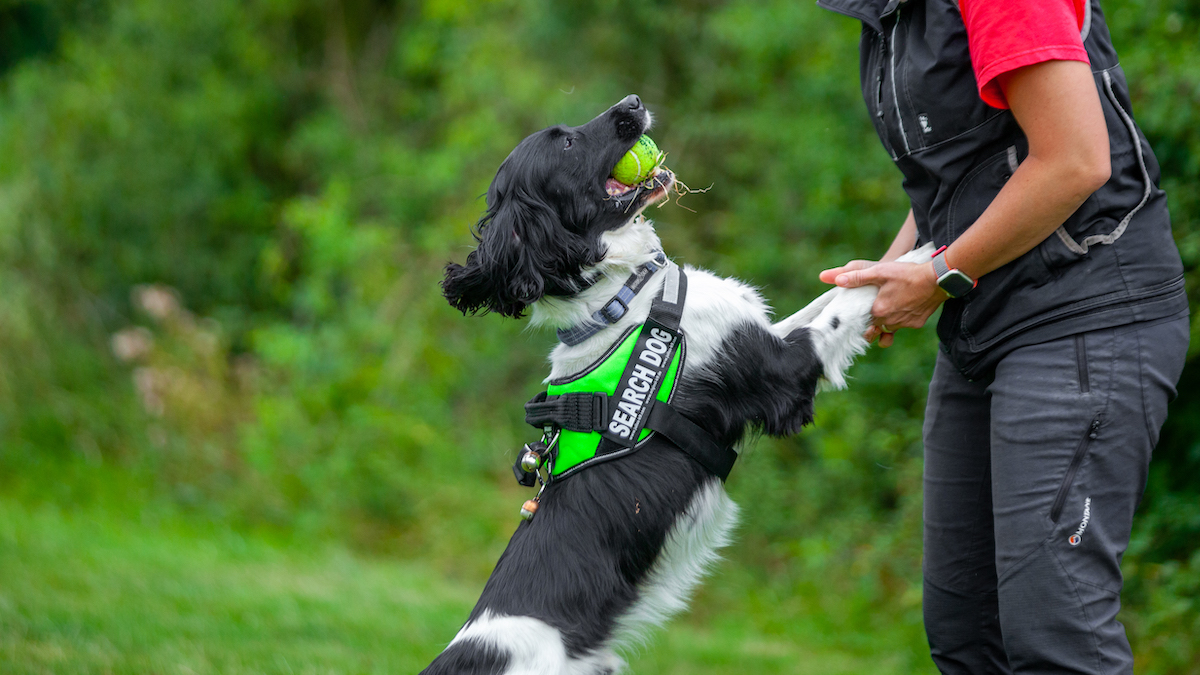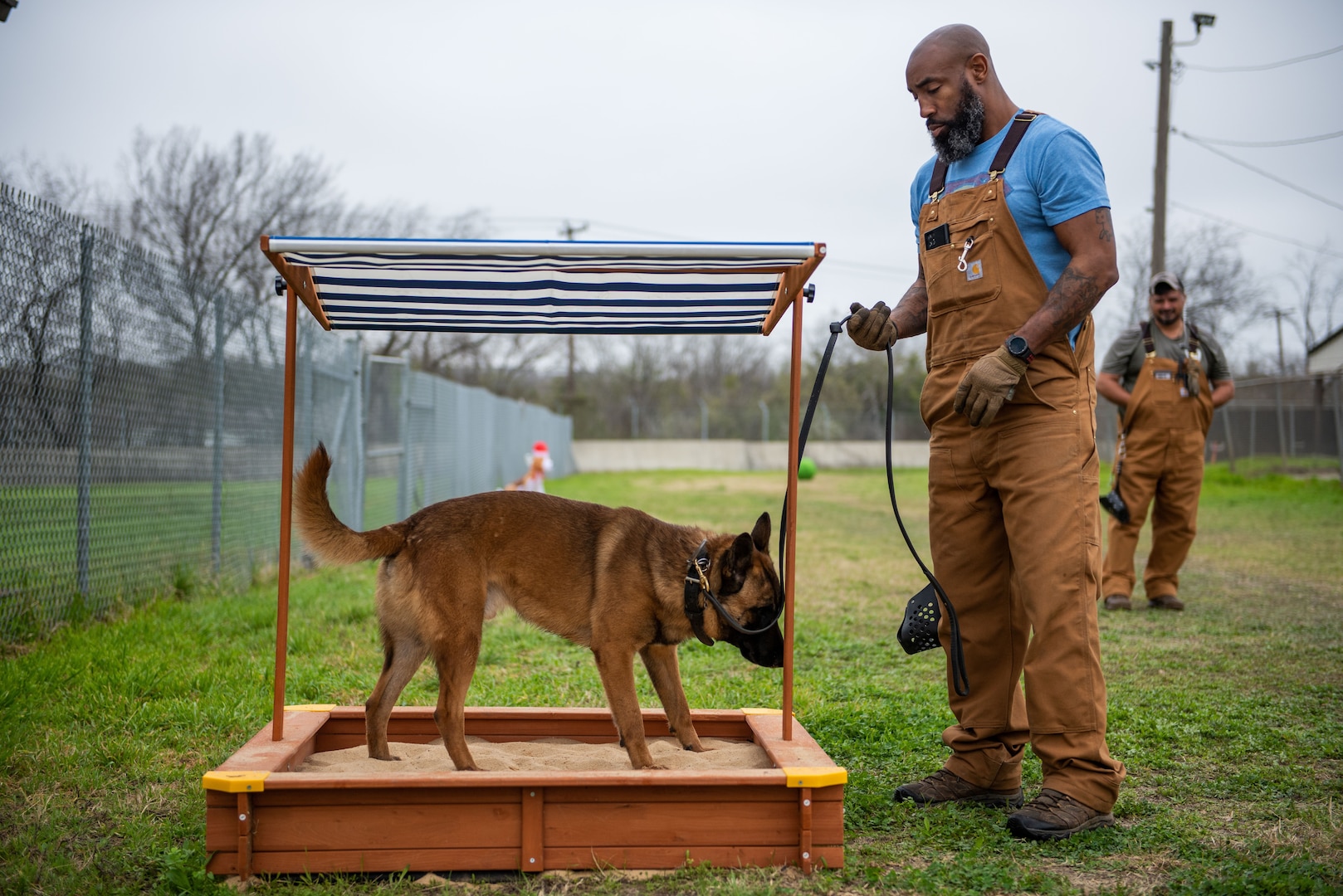Dog Training and Socialization: Key to a Well-Rounded Dog
Dog Training and Socialization: Key to a Well-Rounded Dog
Blog Article
The Ultimate Overview to Canine Training: Change Your Pet's Actions
Reliable pet training is important for fostering an unified connection between animals and their proprietors. The details of canine actions and the application of structured training techniques play a crucial duty in this process. By understanding the concepts of positive support, uniformity, and socialization, pet dog owners can browse common obstacles that develop during training. This overview not only intends to furnish you with the needed devices to change your dog's actions yet additionally welcomes you to check out just how these fundamental principles can lead to a much deeper connection with your pet. What might be the initial step in this transformative journey?
Recognizing Dog Habits
Recognizing dog actions is vital for effective training and an unified partnership in between pets and their proprietors. A dog's habits is influenced by a combination of genetics, setting, and experiences. Dog training. Acknowledging these factors enables proprietors to customize their training approaches to satisfy the private demands of their animals
Pet dogs interact mostly via body movement, vocalizations, and faces. For instance, a wagging tail can suggest excitement or happiness, while a tucked tail might indicate worry or entry. Observing these hints allows proprietors to react properly, strengthening positive actions and addressing adverse ones properly.
In addition, understanding the social framework of canines can give understandings into their behavior. Pets are pack pets, and they prosper in an organized setting. Developing consistent policies and clear borders can prevent confusion and promote a complacency.
Moreover, identifying the natural impulses of pets, such as need to go after or dig, is crucial. These reactions can be redirected via appropriate electrical outlets, such as play or exercise. By adequately recognizing these behavioral elements, proprietors can foster a positive training experience, eventually resulting in a well-adjusted and obedient canine friend.
Essential Training Strategies
Effective canine training counts on a range of important methods that can substantially enhance the understanding procedure for both the owner and the pet dog. One basic technique declares support, which entails gratifying preferable habits with treats, praise, or playtime. This technique encourages pets to repeat the behaviors that result in positive end results, cultivating a trusting partnership between the family pet and proprietor.
An additional trick technique is consistency in commands and assumptions. Making use of the exact same verbal hints and hand signals helps the pet understand what is needed, reducing confusion and promoting quicker knowing. Additionally, establishing clear boundaries and rules is crucial for effective communication.
Socialization is also an important element of training. Exposing dogs to various settings, individuals, and various other animals aids them establish proper social abilities and decreases anxiety in unfamiliar situations.
Lastly, persistence and timing are important. Educating sessions should be short but constant, making certain that the pet remains involved and responsive. By utilizing these vital techniques, proprietors can produce a organized and favorable training experience that advertises excellent actions and strengthens the bond with their canine buddies.
Creating a Training Arrange
How can a well-structured training timetable enhance a pet's understanding experience? A training timetable gives uniformity, making certain that pets obtain normal, focused guideline. This predictability helps canines recognize what is expected of them, strengthening their discovering and enabling better retention of commands and habits.
When producing a training schedule, it is necessary to consider the pet dog's age, breed, and private personality. Young pups may take advantage of much shorter, much more constant sessions, while grown-up pets may prosper with longer, less regular training periods. Integrating a range of activities can likewise keep the sessions involving, preventing boredom and advertising excitement for knowing.
In addition, organizing training sessions at particular times of the day can aid solidify a regimen. Matching training with day-to-day walks or play can produce a favorable association with discovering. It is also critical to include time for support, such as treats or appreciation, to compensate preferred actions without delay.
Lastly, flexibility is essential. While consistency is crucial, being versatile to the pet dog's state click this site of mind or power level can enhance their discovering experience. A well-crafted training schedule inevitably lays the structure for reliable communication and a more powerful bond between the dog and owner.
Typical Educating Challenges
Despite having a well-structured training schedule, pet owners often experience different difficulties throughout the training process. One typical try this website problem is disparity in cues and commands. When numerous member of the family use different terms or tones, a pet may become overwhelmed, preventing its ability to learn effectively.
One more frequent challenge is diversion. Dog training. Canines are naturally interested creatures, and outside stimulations such as other animals, sounds, or individuals can divert their interest during training sessions. This calls for proprietors to produce a regulated atmosphere or progressively introduce diversions to enhance focus
In addition, differing energy levels can affect training results. High-energy dogs might battle to settle and focus, while much more easygoing breeds may require extra motivation to involve. Tailoring the training method to fit the private pet's personality is important for success.

Structure a Strong Bond
A solid bond between a pet dog and its proprietor is essential for successful training and total health. Dog training. This connection fosters count on, which is crucial for efficient interaction during the training process. When a pet feels connected and protected to its owner, it is most likely to respond positively to commands and cues
To build this this contact form bond, consistency is key. Developing a regimen that consists of normal feeding, exercise, and training sessions helps produce a sense of stability. Additionally, positive support strategies, such as deals with, appreciation, and play, strengthen wanted behaviors while enhancing the emotional connection.
Socialization is an additional crucial element of bond-building. Exposing your canine to various settings, individuals, and various other animals helps them feel much more comfy and confident, improving the bond with their owner. Taking part in tasks together, such as walking, playing bring, or taking part in obedience training, promotes synergy and common satisfaction.
Conclusion

Recognizing dog habits is essential for reliable training and an unified connection between dogs and their proprietors.Reliable pet dog training depends on a variety of essential strategies that can substantially improve the knowing procedure for both the owner and the canine.Regardless of having a well-structured training timetable, dog proprietors usually encounter numerous challenges throughout the training procedure.In final thought, reliable pet training counts on a comprehensive understanding of canine habits, the application of important strategies, and the establishment of an organized training routine. By highlighting positive support and uniformity, dog proprietors can substantially enhance their pets' behavior, eventually making certain an unified connection and promoting the well-being of both the canine and its environment.
Report this page